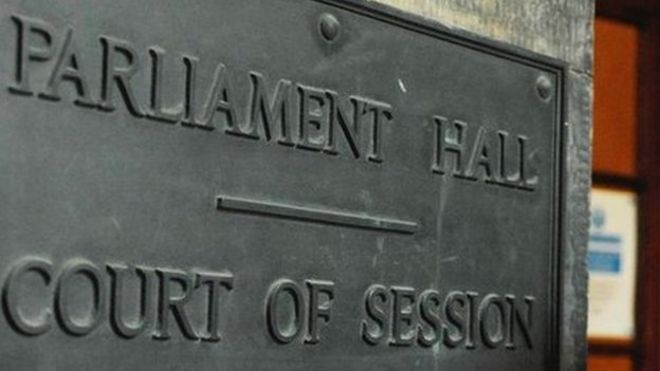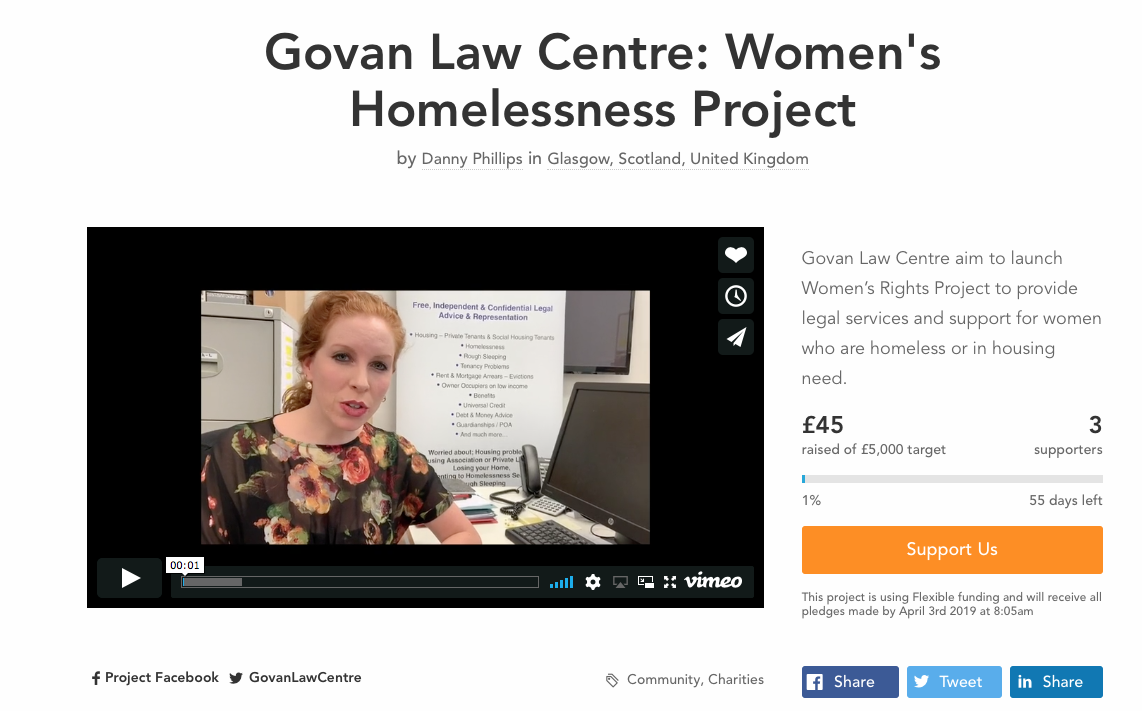 Here our Principal Solicitor, Mike Dailly, blogs on whether an English law governing clause can oust Scots law rights in consumer contracts in Scotland.
Here our Principal Solicitor, Mike Dailly, blogs on whether an English law governing clause can oust Scots law rights in consumer contracts in Scotland.
It is not uncommon for consumer contracts to contain a clause stipulating what law will apply to the agreement in the event of a legal dispute. These are known as
“governing law clauses”. But what happens if you live in Scotland – which has its own distinctive Roman law based legal system and jurisdiction - but your contract has a clause saying it is “
governed by the law of England”?
For example you are ordinarily resident (domiciled) in Scotland but your credit card, loan agreement, or bank account says it is governed by the law of England? This may seem academic for two obvious reasons. First, the
Civil Jurisdiction and Judgments Act 1982 prevents a UK business raising court proceedings in England against a consumer domiciled in Scotland for consumer disputes. Second, most of modern consumer protection and financial services law is UK law (much of which derives from the implementation of EU Directives), so does it really matter if a consumer contract in Scotland has an English law governing clause?
Actually, yes it does matter. In short, because there are many historical and substantive differences in contract and debt law between England and Scotland. Moreover, these areas of law are devolved to the Scottish Parliament, and such distinctions have increased since 1999. To take but one example, from a court action I am currently dealing with at Govan Law Centre.
It is commonplace for international and domestic companies to purchase defaulting UK consumer credit debts from banks, and regulated credit card and loan providers. The purchaser buys the debt at a heavily discounted price, in exchange for assuming all of the risk in recovering some or all of the debt.
In my example case, a debt recovery company (“DRC”) bought a debt from MBNA (the bank that stood behind the Virgin credit card). The last payment from the consumer was in June 2012. The DRC buys the debt, and instruct Scottish solicitors who raise and intimate sheriff court proceedings in September this year. The last acknowledgment of the debt was over 5 years ago, and as
section 6 of the Prescription and Limitation (Scotland) Act 1973 creates a 5-year time bar for recovering such debts, you might think, the DRC is too late here. The court proceedings are incompetent, as the debt has prescribed under Scots law.
However, the consumer credit agreement contains an English governing law clause, and debts do not generally prescribe in English law for six years. Thus the DRC’s lawyers reasonably argue that as English law applies to this contract, the debt hasn’t prescribed in law. But does English law apply to a consumer contract where the consumer is habitually resident and domiciled in Scotland?
I think the answer may require an international
paper chase, which goes something like this. The defender is a consumer and the credit agreement was a consumer contract for the purpose of the
“Rome I Regulation”, Regulation (EC) No. 593/2008. Article 6 of the Rome I Regulation, provides as follows:
“Article 6
Consumer contracts
1. Without prejudice to Articles 5 and 7, a contract
concluded by a natural person for a purpose which can be regarded as being
outside his trade or profession (the consumer) with another person acting in
the exercise of his trade or profession (the professional) shall be governed by
the law of the country where the consumer has his habitual residence, provided
that the professional:
(a) pursues his commercial or professional activities in the country where the consumer has his habitual residence, or
(b) by any means, directs such activities to that country or
to several countries including that country,
and the contract falls within the
scope of such activities.
2. Notwithstanding paragraph 1, the parties may choose the
law applicable to a contract which fulfils the requirements of paragraph 1, in
accordance with Article 3. Such a choice may not, however, have the result of
depriving the consumer of the protection afforded to him by provisions that
cannot be derogated from by agreement by virtue of the law which, in the
absence of choice, would have been applicable on the basis of paragraph
1".
While Article 22 of the Rome I Regulation does not oblige EU
member states to apply Rome I to conflicts between the different laws of
countries within a member state, it leaves this option open. And the UK and
Scottish Parliament applies Rome I to internal UK governing law conflicts. Regulation 4 of The Law Applicable to Contractual Obligations
(Scotland) Regulations 2009 (SSI 2009/410) extends the application of the Rome
I Regulation (with the exception of Article 7 (insurance contracts) with are
dealt with separately) to conflicts solely between the laws of Scotland,
England and Wales and Northern Ireland and Gibraltar. Regulation 4
provides:
“4. Conflicts falling
within Article 22(2) of Regulation (EC) No. 593/2008
Notwithstanding Article 22(2) of
Regulation (EC) No.593/2008 of the European Parliament and of the Council on the law applicable to
contractual obligations (Rome I), that Regulation shall, with the exception of
Article 7 (insurance contracts)1 , apply in the case of conflicts between— (a)
the laws of different parts of the United Kingdom, or (b) the laws of one or
more parts of the United Kingdom and Gibraltar, as it applies in the case of
conflicts between the laws of other countries”.
We have more paper chasing because the effect of
Regulation4 is to apply the Rome I Regulation to conflicts between different parts of the
UK in contractual obligation cases. Thus a credit card agreement can choose -
with the consent of the consumer by signing it - English law. The Rome I
Regulation is then engaged. And on the face of it,
section 23A of the
Prescription and Limitation (Scotland) Act 1973, requires the Scottish courts
to respect that choice for prescription issues.
However, s
ection 23A(4) disapplies section 23A where Rome I
is engaged, as would occur in our example case where English law is chosen to
govern a Scottish consumer contract. However, the journey does not end there,
because as we have seen Article 6.2 of Rome I prevents a consumer from losing statutory
protections in their country of habitual residence which they would have
enjoyed had the business not chosen a different law. So if a defender is a
consumer who had their habitual residence in Scotland when the contract was
concluded, English law can be chosen.
However, the Scottish consumer would still be entitled to
enjoy the five year time period under the Prescription and Limitation
(Scotland) Act 1973. A consumer protection that exists in Scotland is preserved
by virtue of Article 6.2 of Rome I. All of which would mean the DPC can't rely
on an English law six year time bar period for pursuing a debt in a Scottish
consumer contract. As this point looks set to be debated at Glasgow Sheriff
Court, hopefully an answer to this interesting paper chase will be available
shortly.

Blog: The Rome I Regulation & Scottish consumer contracts
 Here our Principal Solicitor, Mike Dailly, blogs on whether an English law governing clause can oust Scots law rights in consumer contracts in Scotland.
Here our Principal Solicitor, Mike Dailly, blogs on whether an English law governing clause can oust Scots law rights in consumer contracts in Scotland.

















 34 Hours per week, Full Time, Glasgow, Salary £26,500 p.a. Funded till September 2019 (Job Share Considered). Location: Glasgow.
34 Hours per week, Full Time, Glasgow, Salary £26,500 p.a. Funded till September 2019 (Job Share Considered). Location: Glasgow.


























